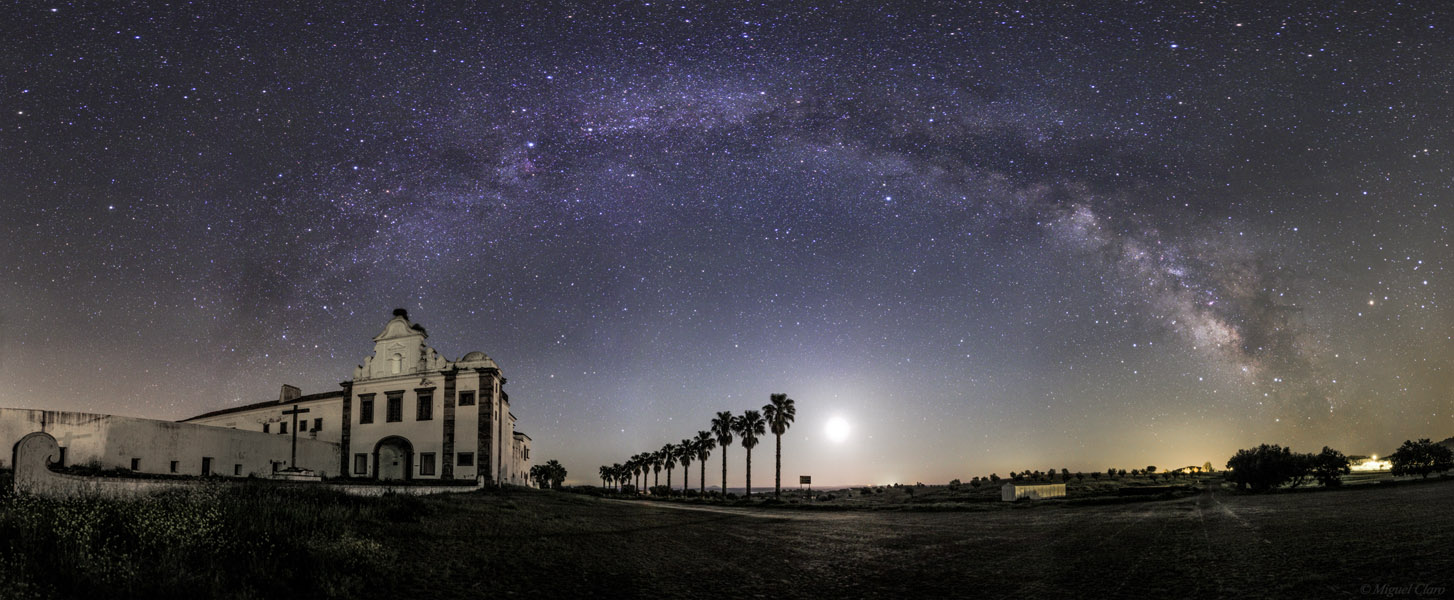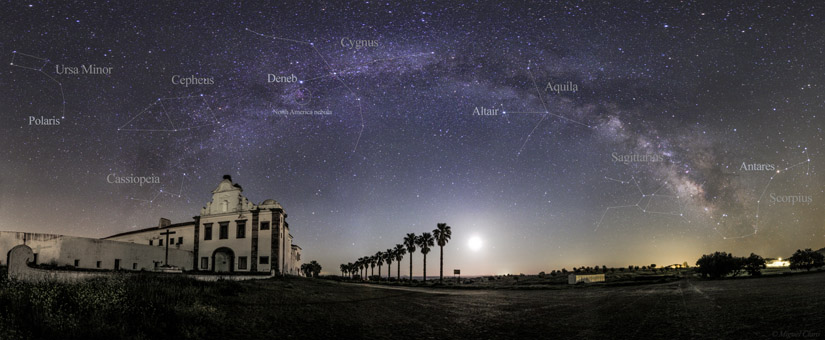Difference between revisions of "April 16, 2013"
| Line 2: | Line 2: | ||
=Milk for the Moon= | =Milk for the Moon= | ||
| − | + | <!-- ws:start:WikiTextHeadingRule:0:<h1> --> | |
| − | + | <!-- ws:start:WikiTextLocalImageRule:6:<img src="http://lpod.wikispaces.com/file/view/LPOD-Apr16-13.jpg/423426460/LPOD-Apr16-13.jpg" alt="" title="" /> -->[[File:LPOD-Apr16-13.jpg|LPOD-Apr16-13.jpg]]<!-- ws:end:WikiTextLocalImageRule:6 --><br /> | |
<em>image by [mailto:miguelclaro@sapo.pt Miguel Claro], Portugal</em><br /> | <em>image by [mailto:miguelclaro@sapo.pt Miguel Claro], Portugal</em><br /> | ||
<br /> | <br /> | ||
| Line 24: | Line 24: | ||
<br /> | <br /> | ||
<hr /> | <hr /> | ||
| − | |||
| − | |||
| − | |||
| − | |||
Revision as of 23:45, 2 January 2015
Milk for the Moon

image by Miguel Claro, Portugal
With the arrival of spring, the Milky Way begins to be visible in the skies of Portugal at dawn, in this image, captured in Monsaraz, in the
Alqueva´s Dark Sky Reserve, you can watch it in plenty, thanks to this mosaic of 21 images that allows a large field of view, revealing this
"arm" of our galaxy above the Convent of Orada (dated 1670). Near the center at the right of palm trees, the Moon shines brightly, although
not interfering with the giant arc of the Milky Way where it is possible to distinguish a lot of constellations like Ursa Minor, with the Polaris
star to the left of the image, until the swan (Cygnus), with its North America nebula (NGC7000) clearly visible; down to the right, we still find
the constellations of Sagittarius and Scorpius, with the brilliant super giant star, Antares.

Chuck Wood
Technical Details
06/04/2013 at 5h32 AM. Canon 60Da - ISO1600 Lens 24mm f/2; Exp. 15 secs. Mosaic of 21 images.
Related Links
Miguel's website



